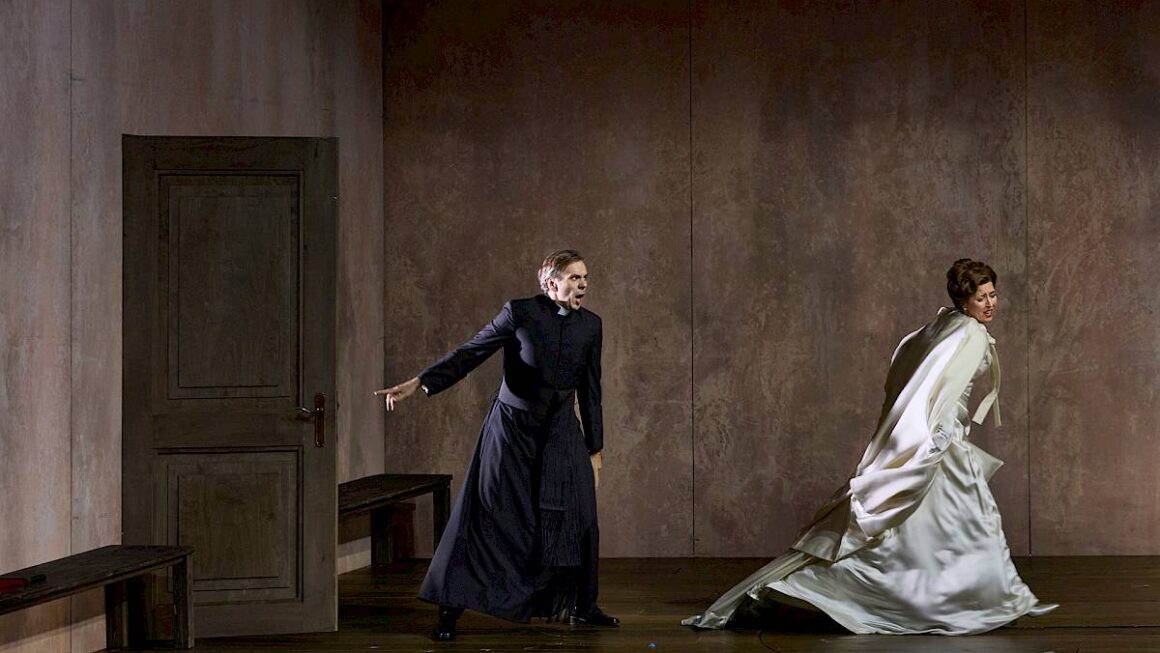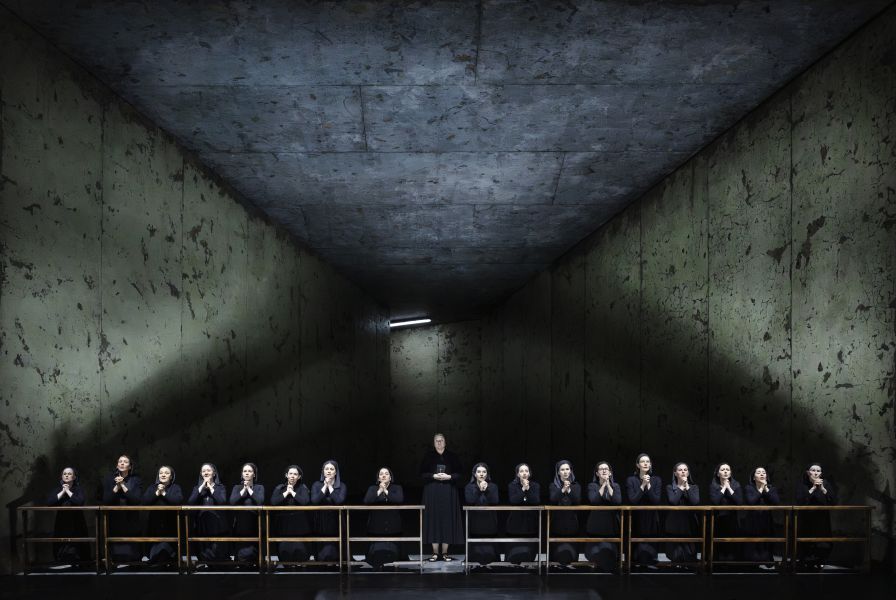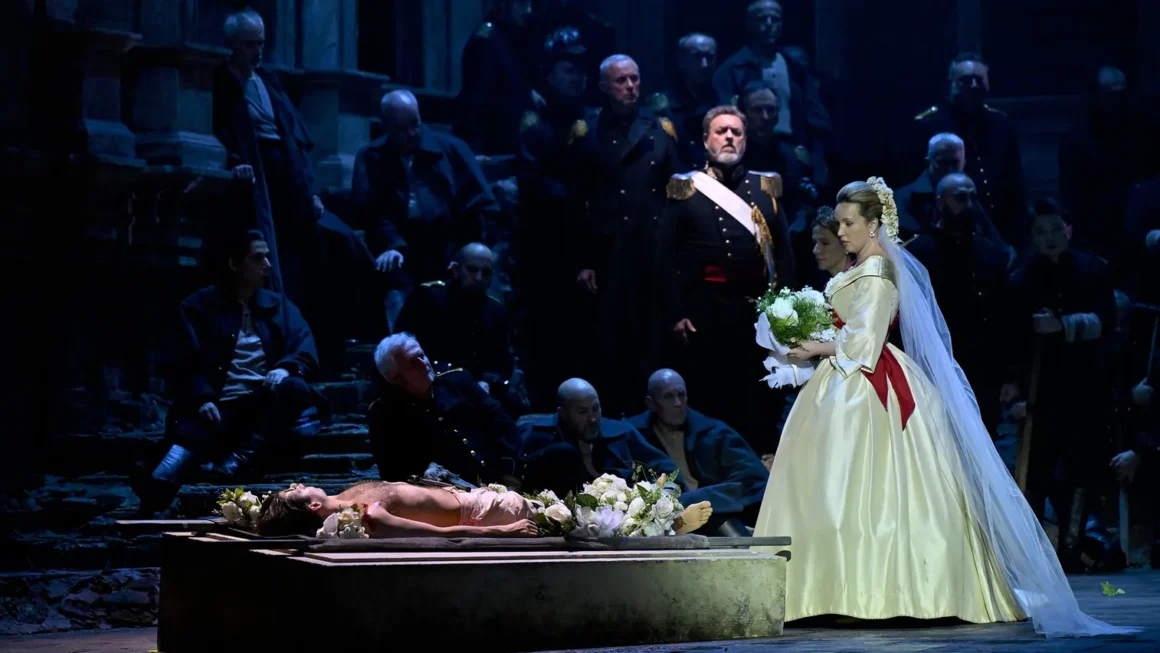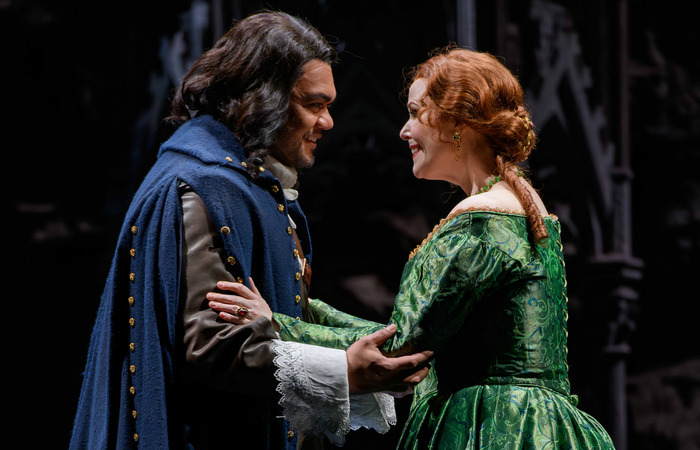On September 27th, the Zurich Opera revived its production of Massenet’s Manon, a total triumph, carried by a pair of artists at the absolute height of their powers.
At the heart of the evening was Lisette Oropesa, whose portrayal of Manon confirms her complete artistic maturity in the role. From the first act, her command of the character’s arc was palpable. She brought a finely shaded interpretation that captured Manon’s evolution from youthful impulsiveness to tragic despair. Oropesa’s voice, always radiant, was imbued with emotional texture throughout. The famous “Adieu, notre petite table” was deeply moving, rendered with such intimacy and fragility that the audience seemed to hold its breath. In contrast, the dazzling gavotte in Act III showed her technical brilliance yet impeccably controlled. Her crystalline high notes and refined phrasing, paired with flawless French diction, placed her firmly among the definitive interpreters of the role today. She offered not just a vocally perfect Manon, but one who felt vividly, heartbreakingly real.
Opposite her, Benjamin Bernheim delivered an incandescent and deeply introspective Des Grieux. His portrayal combined youthful fervor with emotional complexity, making Des Grieux more than a romantic hero, he became a man torn between spiritual ideals and carnal longing. Bernheim’s “En fermant les yeux” was a moment of suspended beauty, sung with breathless tenderness and a dreamlike sincerity that drew the audience into his inner world. Later, “Ah! fuyez, douce image” was not performed with externalized anguish but rather as a restrained, internal cry. A choice that felt entirely consistent with Bernheim’s psychologically nuanced reading of the role. His chemistry with Oropesa was electrifying, the dramatic tension between them heightening as the opera progressed.
Yannick Debus, in the role of Lescaut, brought a grounded authority to the stage. His voice, rich and resonant in the lower register, conveyed both the streetwise pragmatism and the conflicted loyalties of the character. Debus played Lescaut not simply as Manon’s opportunistic cousin, but as someone genuinely torn between affection and ambition, his acting as precise as his singing.
In the role of the Comte des Grieux, Nicolas Testé was both dignified and emotionally restrained, a perfect embodiment of aristocratic authority. Yet in his duets with Manon and his son, moments of vulnerability and sorrow broke through his controlled exterior, adding unexpected emotional resonance. His presence gave weight to the generational and moral conflicts at the heart of the opera.
The supporting cast was uniformly good. Andrew Moore as Brétigny and Daniel Norman as Guillot, both finely portrayed. Their performances were more than mere caricatures and their presence enriched the narrative and added vital texture to the world around the central couple.
Director Floris Visser offered a minimalist staging that avoided lavish distraction, opting instead for an aesthetic that foregrounded the emotional and psychological prison in which each character is trapped. By stripping away unnecessary ornamentation, Visser brought the narrative’s emotional stakes into sharper focus. The cold beauty of the set served as a stark visual metaphor for Manon’s descent, a mirror to her increasing isolation.
Directed by Sesto Quatrini, the orchestra of the Opernhaus Zürich delivered a deeply sensitive reading of Massenet’s lush, often fragile score.
With this performance, the Opernhaus Zürich sets an early benchmark for the 2025–2026 season. It is rare for an opera house to present, so early in the year, what may well be remembered as one of the artistic summits of the season. But when a house brings together a couple of artists at their absolute peak, Lisette Oropesa and Benjamin Bernheim, it creates something more than a great evening. It creates a moment of operatic history.





Two stars on the same stage!